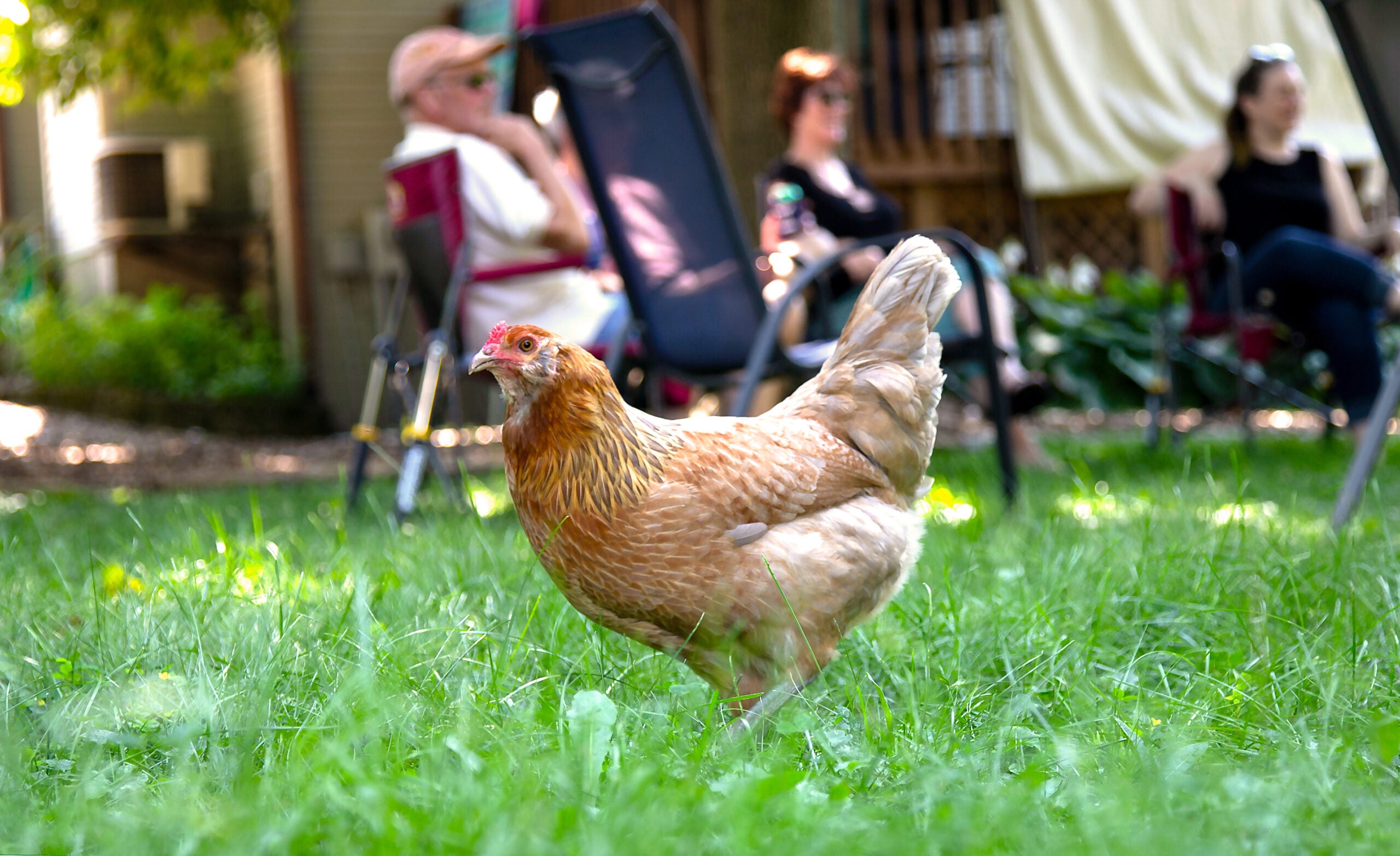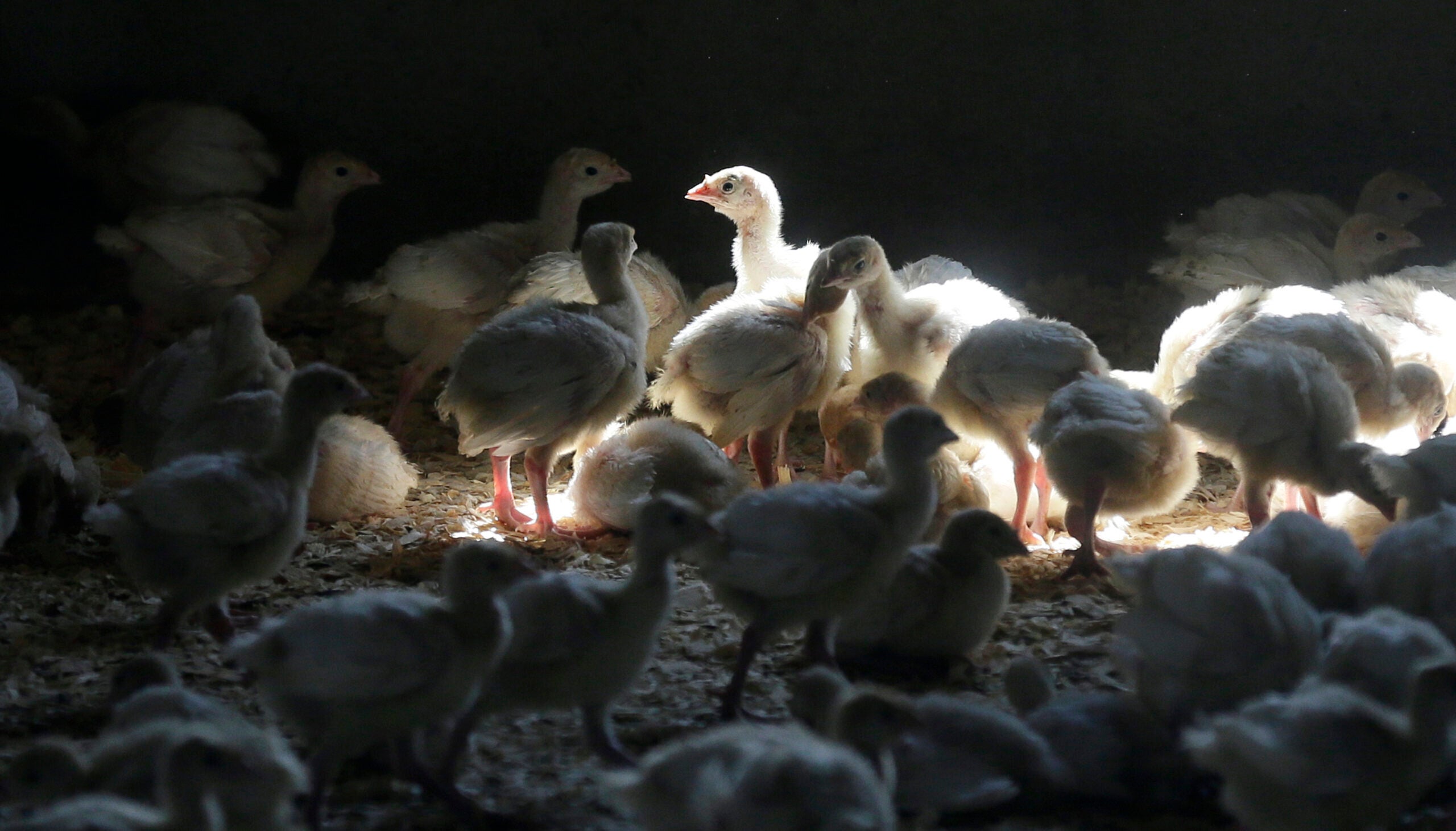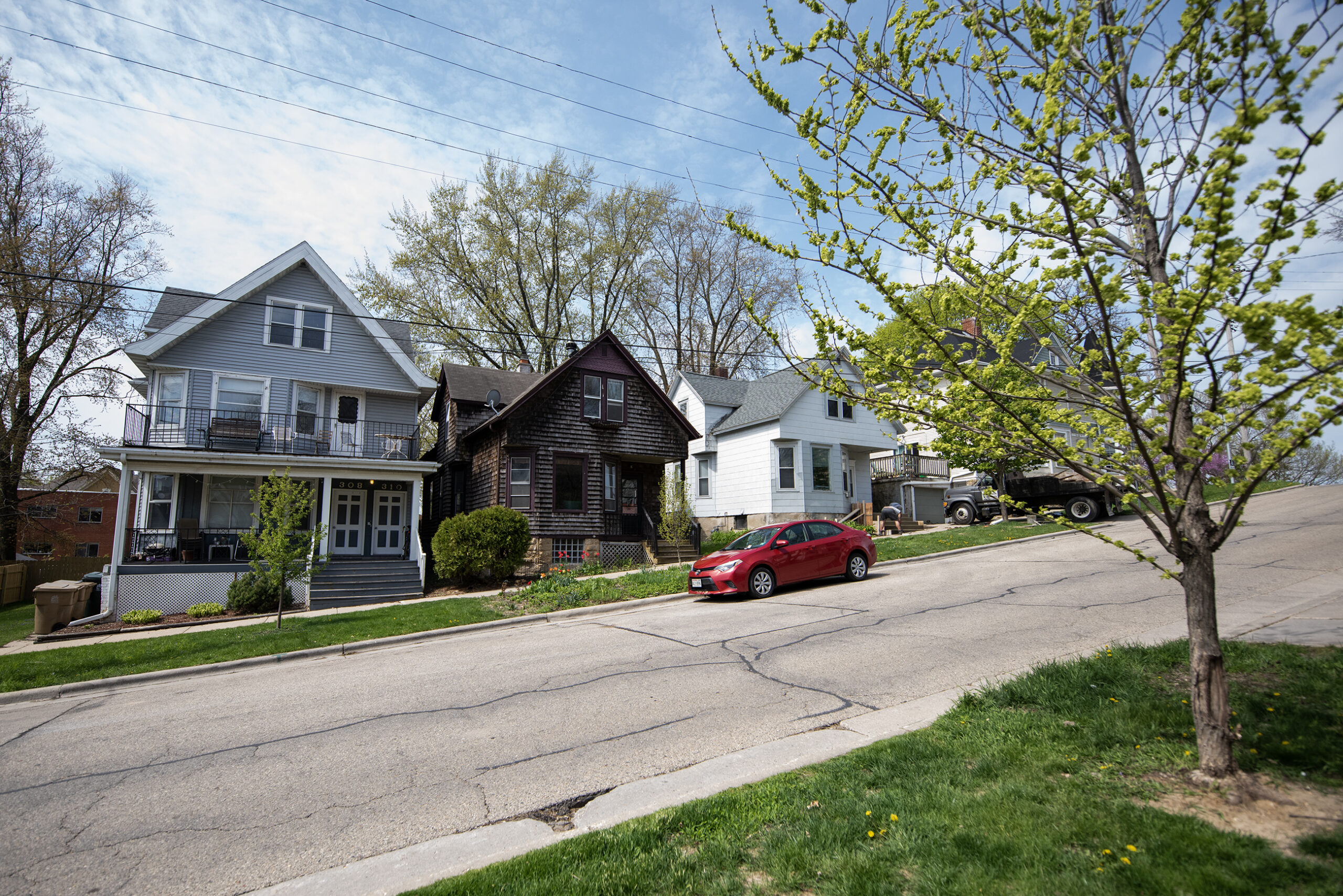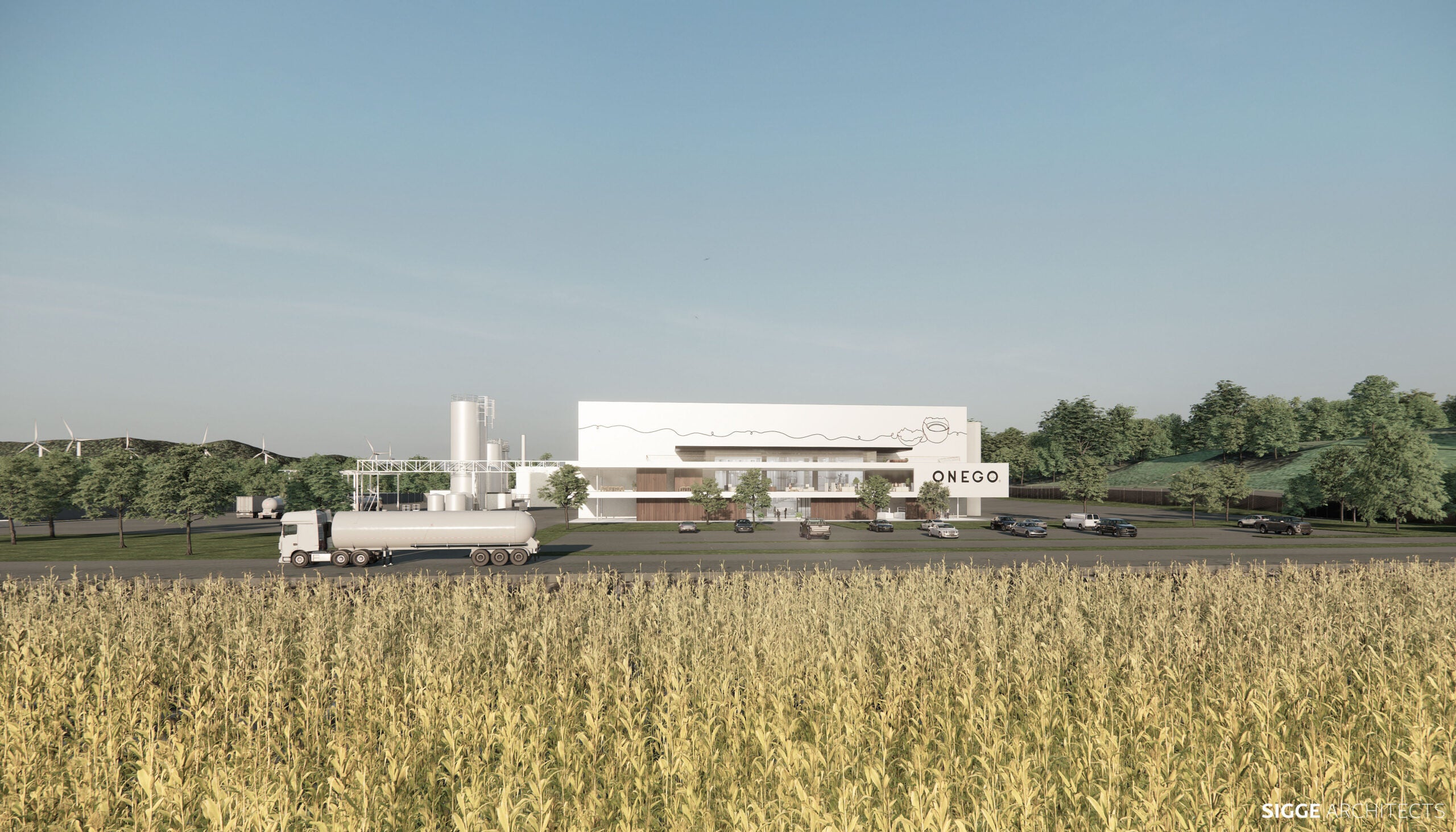Madison is doubling its limits on residential chickens.
Zoning changes adopted unanimously by the Madison Common Council this week raise the city’s limit on backyard chickens from four to eight.
Madison resident Philosophy Walker spoke in support of raising the limit. She noted hens eventually age out of laying eggs, leaving chicken owners like her in a rather foul situation.
News with a little more humanity
WPR’s “Wisconsin Today” newsletter keeps you connected to the state you love without feeling overwhelmed. No paywall. No agenda. No corporate filter.
“They have no way to get more laying hens unless they give up or kill the chickens they currently own,” Walker told the council. “This is difficult and painful for people for whom chickens are pets, not just livestock.”
Walker also described eggs as a financial benefit to families — especially now that Americans are left scrambling in response to steep egg prices.
“I personally give several dozen eggs to food pantries every summer and most of my neighbors all get a few extra dozen for free throughout the year, and that helps everyone’s foods budgets, not just mine,” she said.
Madison’s rules allow residents to get an annual $10 license to keep chickens on a residential lot, as long as there are no more than four housing units on the lot.
Previously, people could keep up to six chickens in a coop near a school, museum or day care center. The amendments now raise that limit to eight chickens — the same as Madison’s newly-adopted cap for residential coops.
Alder Yannette Figueroa Cole, a sponsor of the amendments, said the city should encourage options like raising chickens as a way to promote sustainable food supplies.
“It was my understanding that there’s people that already have extra chickens, and we want to make sure people are not breaking the law,” she said.
A city-wide ban on keeping roosters remains in effect, along with a ban on slaughtering chickens on-site.
An earlier version of the ordinance, backed by Figueroa Cole and Alder Grant Foster, would have raised the backyard chicken limit to 10. Alders settled on eight chickens as a compromise after Madison’s Zoning Office recommended a six-chicken cap.
“Allowing 10 chickens, more than double the current amount, starts to change the policy intent and can increase complaints and tension between chicken keepers and their neighbors,” officials wrote in a zoning memo.
As of mid-March, 114 Madison households or organizations had annual licenses to keep chickens, according to the zoning office.
How many backyard chickens are allowed in other Wisconsin cities?
All of Wisconsin’s largest cities allow the backyard birds in some form, although they allow fewer chickens compared to Madison’s new cap, according to a review by Wisconsin Public Radio of ordinances and city websites.
Here’s what’s allowed in other communities:
- Milwaukee: People can get licensed to keep up to four chickens on a residential property.
- Green Bay: Residents have to get a license to keep chickens, once the birds are more than 8 weeks old. The license allows up to four hens.
- Kenosha: Single-family residential units can get a $200 license to keep up to four hens, under an ordinance adopted by the common council late last year.
- Racine: A permit allows up to four chickens on a residential property.
- Appleton: Up to six chickens are allowed near single-family or two-family dwellings.
Wisconsin Public Radio, © Copyright 2026, Board of Regents of the University of Wisconsin System and Wisconsin Educational Communications Board.







